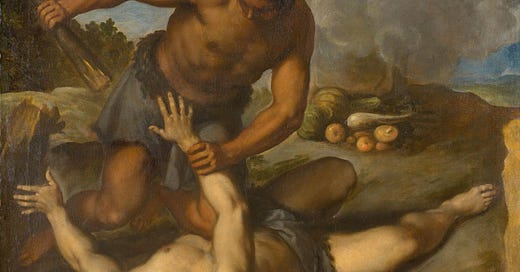I.
The story of Cain and Abel in Genesis 4 is a story about competition leading to envy and violence. It’s a story about scarcity, be it real or perceived, leading to enmity. Yet the story might have gone a different way. God tells Cain—whose sacrifice is rejected:
“Why are you distressed,
And why is your face fallen?
Surely, if you do right,
There is uplift.
Keep reading with a 7-day free trial
Subscribe to What Is Called Thinking? to keep reading this post and get 7 days of free access to the full post archives.




